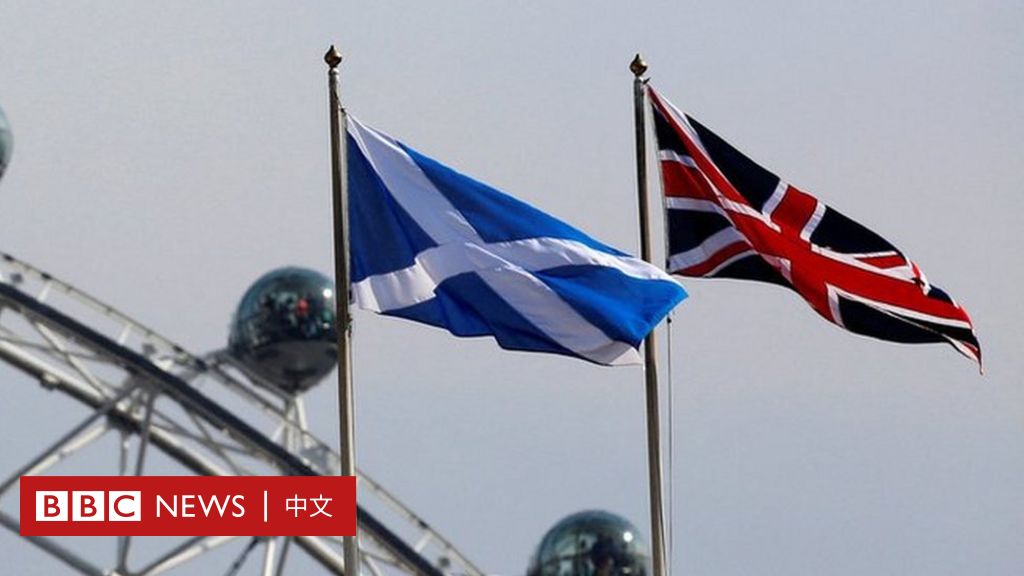image source,Reuters
The UK Supreme Court has ruled that the Scottish Government cannot hold a referendum on independence without the consent of the UK Government.
Scottish First Minister Nicola Sturgeon wants to hold a referendum on October 19 next year.
But the Supreme Court unanimously ruled that Sturgeon had no right to call a referendum.
Scotland held an independence referendum in 2014 which was agreed in advance by the UK government, but the UK government has consistently rejected Scotland’s proposal to hold another independence referendum.
How did the judge decide?
Lord Reed, Chief Justice, said Scotland itself lacked the power to legislate some areas of the constitution, including the union of Scotland and England, under the laws that created the Scottish Parliament following devolution in 1999.
Although the Scottish Government maintains that the referendum has no legal effect on the union of Scotland and England, it has only a “consultation” meaning and only allows the public to express their views on whether Scotland should become an independent country. But Lord Reed rejected that argument.
Lord Reed said: “The Scottish Government’s Referendum Bill addresses an issue that should be reserved for the UK Parliament.
He said the Scottish Parliament had no power to legislate for a referendum without an agreement between the Scottish and English governments.
Lord Reed added: “A legally held referendum will have significant policy implications for the Union and the UK Parliament.”
“In a constitutional and political culture built on democracy, the result of the referendum, in which Scottish voters democratically express their views, will have authority.”
reaction
Scottish First Minister Sturgeon said on Twitter that she was disappointed by the ruling but had respected the court’s decision, stressing that judges don’t make laws, they just interpret them.
“Democracy in Scotland will not be taken away,” he said. She also added: “A law which does not allow Scotland to choose its future without the consent of the British Parliament exposes the fiction of the United Kingdom as a voluntary partnership and justifies Scottish independence.”
Recent opinion polls show that Scotland is divided on the issue of independence, with a slim majority in favor of remaining in the UK.
Sturgeon has previously said that if the Supreme Court rules against her, it will use the upcoming general election as a “de facto referendum”, while the SNP will make independence the only issue that needs to be fully fought in the general election.
image source,Average AP
Scottish First Minister Sturgeon holds a press conference following the Supreme Court ruling.
Scottish Affairs Secretary Alister Jack said the UK government was committed to working with the Scottish Government on “issues that matter most to the Scottish people”.
He said: “The benefits of being part of the UK have never been more apparent. We are safer, stronger and more prosperous when we work together as a UK.”
British Prime Minister Rishi Sunak welcomed the Supreme Court’s ruling during regular Prime Minister’s Questions in Parliament on Wednesday afternoon, saying “now is the time for politicians to cooperate”.
Sturgeon targets independent plan C
Analysis by BBC Scotland political editor Glenn Campbell:
Ms Sturgeon confirmed that she will carry the independence movement into the next UK general election unless the UK government suddenly and unexpectedly agrees to a referendum on Scottish independence.
This is Plan C: try to win a majority of Scottish voters for independence at a general election and, if achieved, claim that it is the voters’ mandate for Scotland to secede from the UK.
The details of that approach will be decided at a special SNP conference next year: including what questions will arise and what Ms Sturgeon should do if her SNP and her allies get more than 50% of the vote.
It’s a big bet. The SNP has never won such an important election before. In UK elections, 16- and 17-year-olds have no right to vote. Other issues are likely to come into play, and one is likely to watch closely whether Labor or the Conservatives will succeed in the prime minister’s office.
Of course, there is no guarantee (regardless of which party comes to power) that the next prime minister will accept the result of the general election as if it were an independence referendum.
Sturgeon would not reveal his future or impact on the independence movement if the SNP lost the election, saying only: “If we don’t win, we don’t deserve independence.”
A vigorous political dispute is coming
BBC Scotland political correspondent Philip Sim (Philip Sim) analyzes:
The ruling will have a huge impact on the Scottish independence debate.
However, this will not solve the problem and a huge political dispute will ensue.
Sturgeon has no intention of giving up independence. He has made it clear that he will portray the unfavorable Supreme Court ruling on independence as yet another obstacle in Scottish democracy’s path, and hopes the feeling of unfairness at being denied a voice will spark a surge of public support for independence.
How the constitutional issue is resolved will also be a big question for British officials, as it continues to dominate Scottish politics.
The judges have outlined how the law is defined, but ultimately it will be up to the politicians to settle the matter once and for all.


